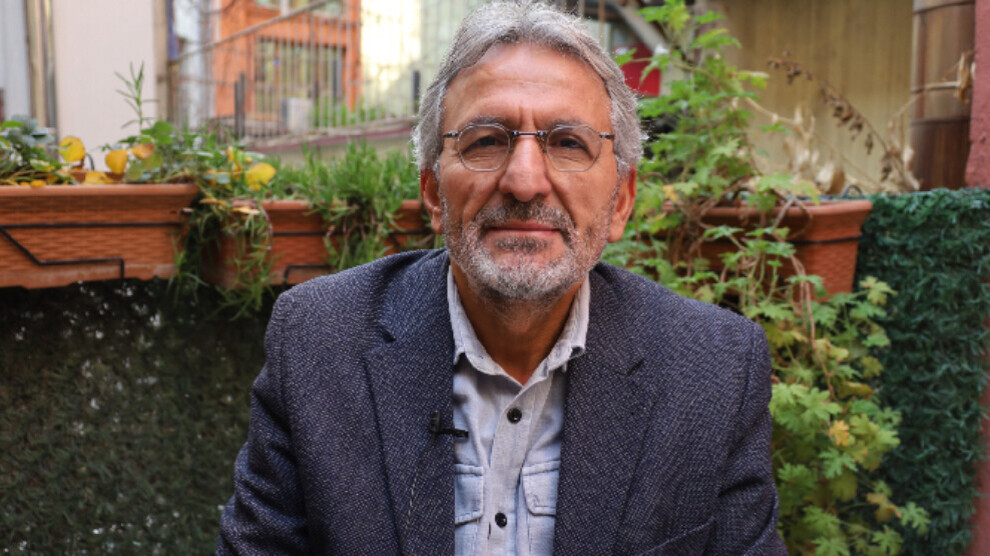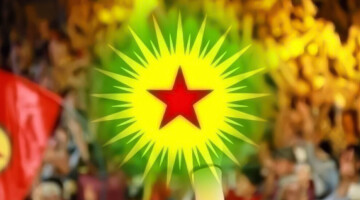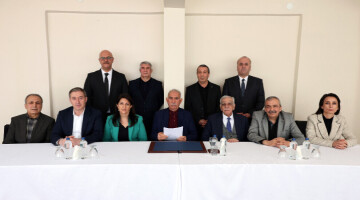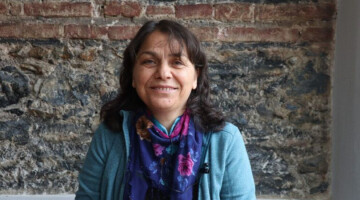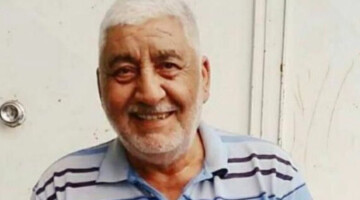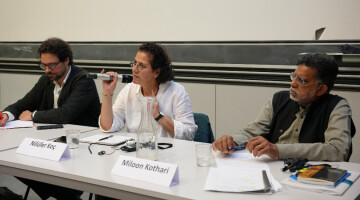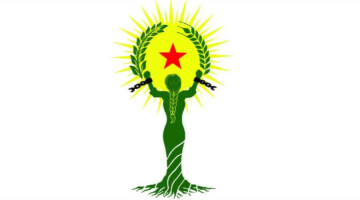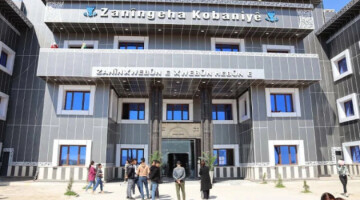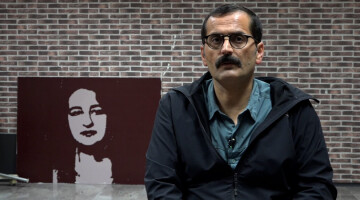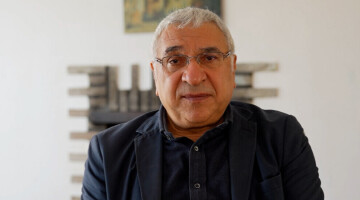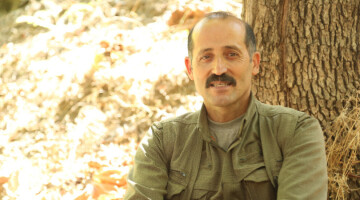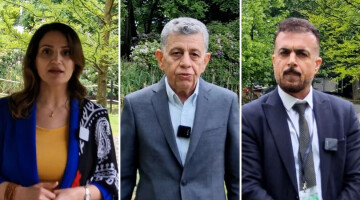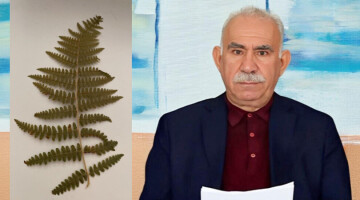The AKP-MHP government has recently increased pressure on both the media and the opposition. In the past two months, 16 journalists, including the General Director of Halk TV, Suat Toktaş, have been arrested. In a recent operation targeting the Socialist Party of the Oppressed (ESP), 34 more people were arrested. On 13 January, a trustee was appointed to Akdeniz Municipality, which is governed by the DEM Party, and on 29 January, a trustee was also appointed to Siirt Municipality. President Recep Tayyip Erdoğan threatened CHP-controlled municipalities by saying, 'The biggest surprise is yet to come,' while a swift investigation was launched against Ekrem Imamoğlu, the mayor of Istanbul. Meanwhile, a probe that started with discussions of "monopolization" in the world of cinema culminated in the arrest of manager Ayşe Barım, linking her to the Gezi protests.
The rapid succession of these events has fueled a debate suggesting that they represent a full-scale attack on the opposition. Ender Imrek, a journalist and writer, a member of the DEM Party’s Central Executive Committee, spoke to ANF about these recent events.
The government has recently increased pressure on all sectors. It has appointed trustees, ordered detentions of journalists and members of the ESP. It has even put on the agenda to Gezi Park protests again. Can we liken this period of repression to that under the state of emergency (OHAL)?
We are actually going through a unique period. The AKP government is kind of synthesizing all its previous antidemocratic practices in a new phase. In particular, there have been developments that still have a traumatic effect on the government, such as the Gezi protests and the resistance of the Kurdish people during the Kobane siege. We saw how the government used the law during judicial processes. Today, especially after its massive defeat in the local elections, the government has been seriously shaken historically.
Erdoğan frequently mentions the local elections in his speeches, saying, "We have learned lessons"…
Yes, because this election nearly disrupted Erdoğan’s ambitions. However, the approach of the Nation Alliance, particularly the Republican People’s Party (CHP), and the attitude of their allies who are deeply connected, in dialogue, and in serious relationships with the government, the system, and the elites, actually weakened that front. The stance taken by the Kurds, the leftists and socialists, and revolutionary democratic forces against the AKP government is very different from the stance taken by various factions within the sovereign front.
What are these differences?
The CHP has largely failed to take into account the democratic aspirations and demands of the Kurdish people, the rhetoric of leftist and socialist movements, their warnings, and suggestions. Instead, it has placed excessive trust in the sovereign classes and groups that are also in various forms of relationship and dialogue with Erdoğan. This was how the presidential election was lost. However, within eight months, a relatively short time, a significant social warning was sent through the ballot box. Afterward, Erdoğan focused on how to reverse this situation, how to change the outcome of the local elections.
In addition, there is also the reality of a country with a very bad economy. In this country, which has been turned into a paradise for the elites, the ruling government operates with exploitation and plunder without any rules or principles. On the other hand, there is a grim situation for the oppressed classes of society: workers, retirees, women, and young people. In short, the oppressed classes are facing a dire reality. Therefore, the government lacks the dynamics to fix this situation. On one hand, it is indebting the country, paying interest, and allocating the budget to war, violence, undemocratic practices, and the insatiable demands of its allies. The burden has been placed on the shoulders of the people, and this burden is growing heavier. On the other hand, the government uses the law as a stick, employing the police, judiciary, and military as tools of violence.
On the other hand, although a trustee was recently appointed to Siirt, history shows that the people have reclaimed the region three times. Can we say that, from the perspective of the government, there is a municipality lost every time they appoint a trustee?
In the local elections, the Kurdish people, the people of the region, and the people of Turkey as a whole, won for the third time against the trustee policies. On the other hand, there is a government that is failing to hold things together. The government cannot fix the economy, nor can it sustain the culture and arts sector. No matter how much pressure and violence it applies, it cannot hold on to those areas for long. It cannot maintain its presence there, and this situation worries it even more. Therefore, it believes it can sustain itself by applying more violence, lawlessness, injustice, and more injustice as it sinks deeper. It is in a complete deadlock, but of course, there are things that need to be done here.
What does the opposition need to do?
Actually, it is important to first address what cannot be done. The AKP has been ruling for 22-23 years, and it carries the legacy of a style, a tone, and an objective continuity inherited from the 12 September 1980 military coup, which dealt a significant blow to the working class, the leftist and socialist movements.
During a period when the workers' movement, the socialist movement, and revolutionary democratic forces were in the process of recovering, the AKP came to power, and it also inherited all the lawlessness and antidemocratic practices granted by the 12 September coup. In the early years, the government made various promises to the people, bringing up the European Union and Copenhagen criteria. There were expectations that things like local government conditions could emerge. Later, the government created various expectations around a democratic solution to the Kurdish question, where the Kurds could achieve equal citizenship with the Turkish people and constitutional guarantees.
We are facing a government that makes highly meticulous calculations. Looking at all of this, it first started by pretending to be involving people, but in reality, it only pretended to apply the law, make a democratic constitution, and clean up all the remnants of the 12 September coup. The AKP created the impression that the decades-long oppression, denial, bans, and state of emergency practices against the Kurds could end. It used these opportunities to strengthen itself significantly and, in doing so, actually misused the peace and democratization process. We know what happened afterward, with the destruction and attacks on Cizre, Silopi, and Sur.
Therefore, we are talking about such a government. On the other hand, the situation that emerged during the Gezi Park protest scared the government, but Turkey's revolutionary democratic forces, democratic opposition, and the people’s movement during Gezi were unable to increase the people's reaction and movement in the right way to create an alternative to the government. There are still people being prosecuted for the Gezi case. Operations targeting artists are being carried out with accusations of 'participating in Gezi,' and the government is continuously returning to Gezi to charge people.
All of this is tied to the government's fear from that period, and the failure of revolutionary democratic movements, including the Kurdish movement, to transform this into a democratic mass movement and an alternative to the government. This is actually something that requires self-reflection on our part. There needs to be a discussion about why we couldn’t do it, why we couldn’t evaluate that period properly. Now, in all of these matters, the government is becoming more reckless. When we look at what has happened in the last two months, there is an unrelenting attack on the free media. There are continuous operations aimed at the borders, leading to deaths and suffering. There is a layered pressure on all sectors fighting for freedom of the press, thought, expression, and organization inside the country, and they are being silenced. The arrests of ESP members are similarly part of this. Essentially, they want to dismantle the opposition, and this process must be understood in that light.
We are once again faced with a risk: we must consider the possibility that the government is attempting to neutralize the situation by pretending to make peace with the Kurds. However, there are very clear statements, data, and findings suggesting that the Kurdish movement will better assess the situation and, after all this experience, knows that any peace that does not serve the democratization of Turkey will not be acceptable. I do not have concerns in that regard.
In addition, we are confronted with a situation where the CHP failed to capitalize on the massive support it received in the local elections. The essence of the issue lies here. The emerging opposition needs to be pushed further, and instead of relying solely on elections, such as early elections, it must take protests to the streets, production areas, and service sectors.
It is important not to reduce this to ephemeral events, a few rallies, meetings, or slogans, but to transform it into a comprehensive democratic movement at country level. The CHP failed to leverage the social revolutionary democratic opportunities that emerged in this sense. As a result, Erdoğan successfully managed to neutralize it. A process of normalization and similar strategies were implemented. Although there are attempts within the CHP to draw lessons from this situation and to revive the opposition, serious foundations have not yet been established.
Of course, as a result, the attacks have expanded. So, do you think it is possible to have common responses to these attacks?
While the reactions to the attacks on Kurds, leftist, and socialist movements are changing, they are not the same as they were three years ago or during the previous trustee issue. For example, in Van, people stood together. We can also see this in the recent operation against Halk TV. Journalists were taken after the television building was raided, and the response was quick. However, there is a paradox where the reactions here are not as strong when it comes to the pressures on Kurds, the lawlessness against Kurdish journalists, and the Kurdish press. One of the burning issues is that, for Turkey to truly democratize and for the democratic solution to the Kurdish question, the forces acting with the perspective of liberation from the government need to apply a standard in the face of lawlessness, and they must break free from the constraints of the past, from the rhetoric of the past.
How so?
Explaining the issue of Kurdish rights and freedoms through concepts like "terrorism," "separatism," and similar terms is a way of avoiding solutions. Today, in an environment where discussions are ongoing with Abdullah Öcalan, the rhetoric of "baby killer" and "leader of the separatists" must be discarded. All parties, groups, and media outlets that support Turkey's democratization must convey that the operation against Halk TV, for example, is not just an attack on one media outlet but a broader assault on the entire press and society. It is an attempt to silence, intimidate, and send a message that "we can come to your door at any moment, we can raid your home at any time." These are threats against journalists, people posting tweets, and those using social media. In response to these actions, we need a comprehensive democratic movement.
The leftist and socialist movements, revolutionary democratic forces, and the Republican People’s Party, along with the DEM Party and all other pro-democracy forces, need to move beyond merely assessing this process. A trustee was appointed to Siirt, and when we look at the reactions in the media, especially in the West of the country, the operation against Halk TV often overshadows this issue. It is not being addressed comprehensively or effectively. Later, this can be corrected, and we can return to a comprehensive movement.
These things can be seen as something that can be fixed. However, if serious lessons are not learned from the past, there is no reason why the AKP's practices, this violence, pressure, and lawlessness, will not lead to a process that could make the 12 September coup and the periods of state of emergency seem mild in comparison.
Therefore, being anxious and worried is not enough. Waiting is not enough.
Everyone must take a strong stance in response to this. We need to discuss what can be done to develop a strong democratic movement, but this conversation is already being sufficiently carried out by the left, socialist, revolutionary, and democratic forces. What we need now is for this to be translated into action.

